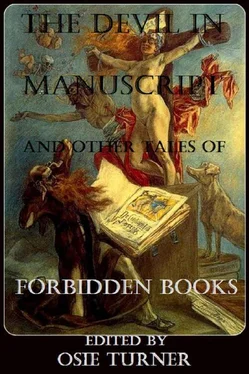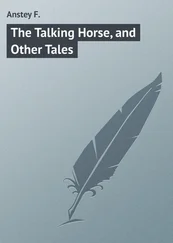On my entrance his lordship apologized for not rising to receive me, on the sufficient plea that the gout for several years past had taken up its constant residence in his right foot, which accordingly was swathed in many rolls of flannel and deposited upon a cushion. The other foot was hidden in the drapery of his chair. Do you recollect whether Byron’s right or left foot was the deformed one.
The noble poet’s reconciliation with Lady Byron is now, as you are aware, of ten years’ standing; nor does it exhibit, I am assured, any symptom of breach or fracture. They are said to be, if not a happy, at least a contented, or at all events a quiet couple, descending the slope of life with that tolerable degree of mutual support which will enable them to come easily and comfortably to the bottom. It is pleasant to reflect how entirely the poet has redeemed his youthful errors in this particular. Her ladyship’s influence, it rejoices me to add, has been productive of the happiest results upon Lord Byron in a religious point of view. He now combines the most rigid tenets of Methodism with the ultra doctrines of the Puseyites; the former being perhaps due to the convictions wrought upon his mind by his noble consort, while the latter are the embroidery and picturesque illumination demanded by his imaginative character. Much of whatever expenditure his increasing habits of thrift continue to allow him is bestowed in the reparation or beautifying of places of worship; and this nobleman, whose name was once considered a synonyme of the foul fiend, is now all but canonized as a saint in many pulpits of the metropolis and elsewhere. In politics, Lord Byron is an uncompromising conservative, and loses no opportunity, whether in the House of Lords or in private circles, of denouncing and repudiating the mischievous and anarchical notions of his earlier day. Nor does he fail to visit similar sins in other people with the sincerest vengeance which his somewhat blunted pen is capable of inflicting. Southey and he are on the most intimate terms. You are aware that, some little time before the death of Moore, Byron caused that brilliant but reprehensible man to be evicted from his house. Moore took the insult so much to heart that, it is said to have been one great cause of the fit of illness which brought him to the grave. Others pretend that the lyrist died in a very happy state of mind, singing one of his own sacred melodies, and expressing his belief that it would be heard within the gate of paradise, and gain him instant and honorable admittance. I wish he may have found it so.
I failed not, as you may suppose, in the course of conversation with Lord Byron, to pay the weed of homage due to a mighty poet, by allusions to passages in Childe Harold, and Manfred, and Don Juan, which have made so large a portion of the music of my life. My words, whether apt or otherwise, were at least warm with the enthusiasm of one worthy to discourse of immortal poesy. It was evident, however, that they did not go precisely to the right spot. I could perceive that there was some mistake or other, and was not a little angry with myself, and ashamed of my abortive attempt to throw back, from my own heart to the gifted author’s ear, the echo of those strains that have resounded throughout the world. But by and by the secret peeped quietly out. Byron,—I have the information from his own lips, so that you need not hesitate to repeat it in literary circles,—Byron is preparing a new edition of his complete works, carefully corrected, expurgated, and amended, in accordance with his present creed of taste, morals, politics, and religion. It so happened that the very passages of highest inspiration to which I had alluded were among the condemned and rejected rubbish which it is his purpose to cast into the gulf of oblivion. To whisper you the truth, it appears to me that his passions having burned out, the extinction of their vivid and riotous flame has deprived Lord Byron of the illumination by which he not merely wrote, but was enabled to feel and comprehend what he had written. Positively he no longer understands his own poetry.
This became very apparent on his favoring me so far as to read a few specimens of Don Juan in the moralized version. Whatever is licentious, whatever disrespectful to the sacred mysteries of our faith, whatever morbidly melancholic or splenetically sportive, whatever assails settled constitutions of government or systems of society, whatever could wound the sensibility of any mortal, except a pagan, a republican, or a dissenter, has been unrelentingly blotted out, and its place supplied by unexceptionable verses in his lordship’s later style. You may judge how much of the poem remains as hitherto published. The result is not so good as might be wished; in plain terms, it is a very sad affair indeed; for, though the torches kindled in Tophet have been extinguished, they leave an abominably ill odor, and are succeeded by no glimpses of hallowed fire. It is to be hoped, nevertheless, that this attempt on Lord Byron’s part to atone for his youthful errors will at length induce the Dean of Westminster, or whatever churchman is concerned, to allow Thorwaldsen’s statue of the poet its due niche in the grand old Abbey. His bones, you know, when brought from Greece, were denied sepulture among those of his tuneful brethren there.
What a vile slip of the pen was that! How absurd in me to talk about burying the bones of Byron, who, I have just seen alive, and incased in a big, round bulk of flesh! But, to say the truth, a prodigiously fat man always impresses me as a kind of hobgoblin; in the very extravagance of his mortal system I find something akin to the immateriality of a ghost. And then that ridiculous old story darted into my mind, how that Byron died of fever at Missolonghi, above twenty years ago. More and more I recognize that we dwell in a world of shadows; and, for my part, I hold it hardly worth the trouble to attempt a distinction between shadows in the mind and shadows out of it. If there be any difference, the former are rather the more substantial.
Only think of my good fortune! The venerable Robert Burns—now, if I mistake not, in his eighty-seventh year—happens to be making a visit to London, as if on purpose to afford me an opportunity of grasping him by the hand. For upwards of twenty years past he has hardly left his quiet cottage in Ayrshire for a single night, and has only been drawn hither now by the irresistible persuasions of all the distinguished men in England. They wish to celebrate the patriarch’s birthday by a festival. It will be the greatest literary triumph on record. Pray Heaven the little spirit of life within the aged bard’s bosom may not be extinguished in the lustre of that hour! I have already had the honor of an introduction to him at the British Museum, where he was examining a collection of his own unpublished letters, interspersed with songs, which have escaped the notice of all his biographers.
Poh! Nonsense! What am I thinking of? How should Burns have been embalmed in biography when he is still a hearty old man?
The figure of the bard is tall and in the highest degree reverend, nor the less so that it is much bent by the burden of time. His white hair floats like a snowdrift around his face, in which are seen the furrows of intellect and passion, like the channels of headlong torrents that have foamed themselves away. The old gentleman is in excellent preservation, considering his time of life. He has that crickety sort of liveliness,—I mean the cricket’s humor of chirping for any cause or none,—which is perhaps the most favorable mood that can befall extreme old age. Our pride forbids us to desire it for ourselves, although we perceive it to be a beneficence of nature in the case of others. I was surprised to find it in Burns. It seems as if his ardent heart and brilliant imagination had both burned down to the last embers, leaving only a little flickering flame in one corner, which keeps dancing upward and laughing all by itself. He is no longer capable of pathos. At the request of Allan Cunningham, he attempted to sing his own song to Mary in Heaven; but it was evident that the feeling of those verses, so profoundly true and so simply expressed, was entirely beyond the scope of his present sensibilities; and, when a touch of it did partially awaken him, the tears immediately gushed into his eyes and his voice broke into a tremulous cackle. And yet he but indistinctly knew wherefore he was weeping. Ah, he must not think again of Mary in Heaven until he shake off the dull impediment of time and ascend to meet her there.
Читать дальше












